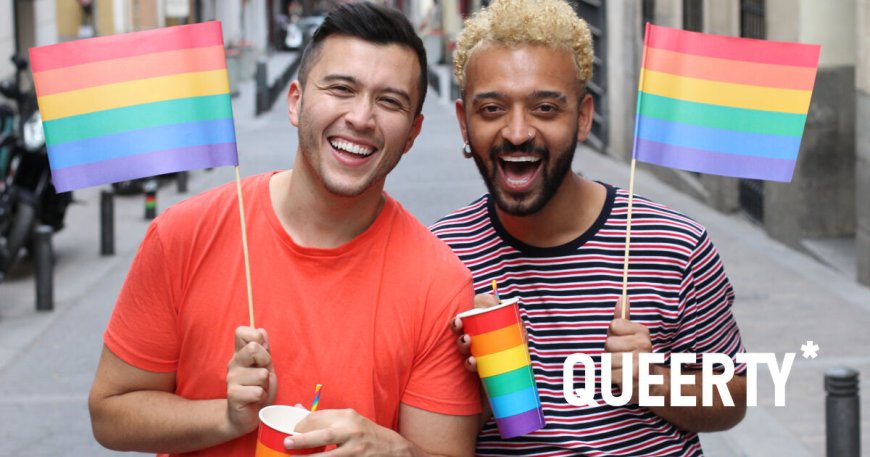Overindulging during Pride? When does celebrating our queerness cross a line into unhealthy behaviors
Pride is a time to celebrate and let loose, but as queer people, we have to remember the risks in our community.


Pride is a time to celebrate your equality, reinforce your validity as a queer person, and enjoy celebrating the start of summer with your friends. For some, however, it can also become an excuse to party even harder than your average weekend bar crawl.
“Come on, let’s do a shot…it’s PRIDE!”, might be something you hear your friend say, and if you have a tendency to lean on “liquid courage” as an emotional crutch or social lubricant, that may be all the invitation you needed to hear.
Gay culture has always been strongly correlated with alcohol. After all, it was gay bars that became the meeting spots for those in the queer community to find each other, dating way back to the ’50s and ’60s. Alcohol brands have been marketing to us for years (much to the dismay of some Bud Light fans!), especially during Pride Month. It’s hard to imagine a gay pool party sans booze, unless it’s specifically a sober event.
But Pride can be a reason to take drinking even one step further. “Watch us get blackout drunk for Pride at 10 am!” one TikTok’er says below, before various partiers share which color of the rainbow their shot will be.
There’s nothing wrong with letting loose once in awhile, but as queer people, we need to be especially mindful about whether or not we’re putting ourselves at risk this Pride season.
On Tuesday, a report was published from the annual National Survey on Drug Use and Health, sponsored by the US Department of Health and Human Services’ Substance Abuse and Mental Health Services Administration, which included data about the LGB community (unfortunately, transgender and nonbinary individuals will not be included until next year’s study, according to CNN).
Not surprisingly, the survey illuminated more data that lesbian, gay, and bisexual people suffer greater mental health and substance abuse issues than the general population, including the shocking fact that a third of all bisexual people and gay males said they had a problem with a substance use disorder in the year before they filled out the survey.
Mental health and substance use challenges can be even more difficult for women and people of color who are members of the LGB community, the report also found. Lesbian and bisexual females were also more likely than straight females to say they had been binge-drinking and about twice as likely to have been heavy drinkers.
So how do we know when we’re crossing a line? For one thing, if you’ve ever wondered if you have a drinking problem, there’s a good chance even asking that question means there’s something there to look at. Taking stock of any negative consequences after a belligerent night out is always a wise thing to do (for real though, how many times are you going to lose that cell phone?). Do your friends tell you that once you start drinking, you don’t want to stop? If so, maybe it’s better to not cross that threshold to begin with.

The SAMHSA survey identifies binge drinking as “consumption of four or more drinks on the same occasion for females and five or more drinks on the same occasion for males on at least 1 day in the past 30 days.” Heavy drinking is defined as “binge drinking on five or more days in the past 30 days.”. Actually counting drinks instead of mindlessly throwing them back can be a sobering act (pun intended), but it’s an important gauge determining if you’re taking Pride one step too far.
And of course, if drinking leads to dabbling in drugs to help you keep the party going, that may also be a red flag that alcohol and you don’t mix well.
Pride is meant to be fun, but we have to remember that as sexual minorities, we “experience unique stressors that can contribute to adverse substance use and mental health outcomes,” according to the recent report.
Stigma, shame, and struggles with self-worth are all factors in our queer experience, and even if we think we’re just having fun, they can rear their ugly head and impact our decision making.
Part of Pride is taking care of ourselves. If you find yourself feeling down and depleted after the party’s over, there might be a better way to celebrate.

 Mark
Mark 





